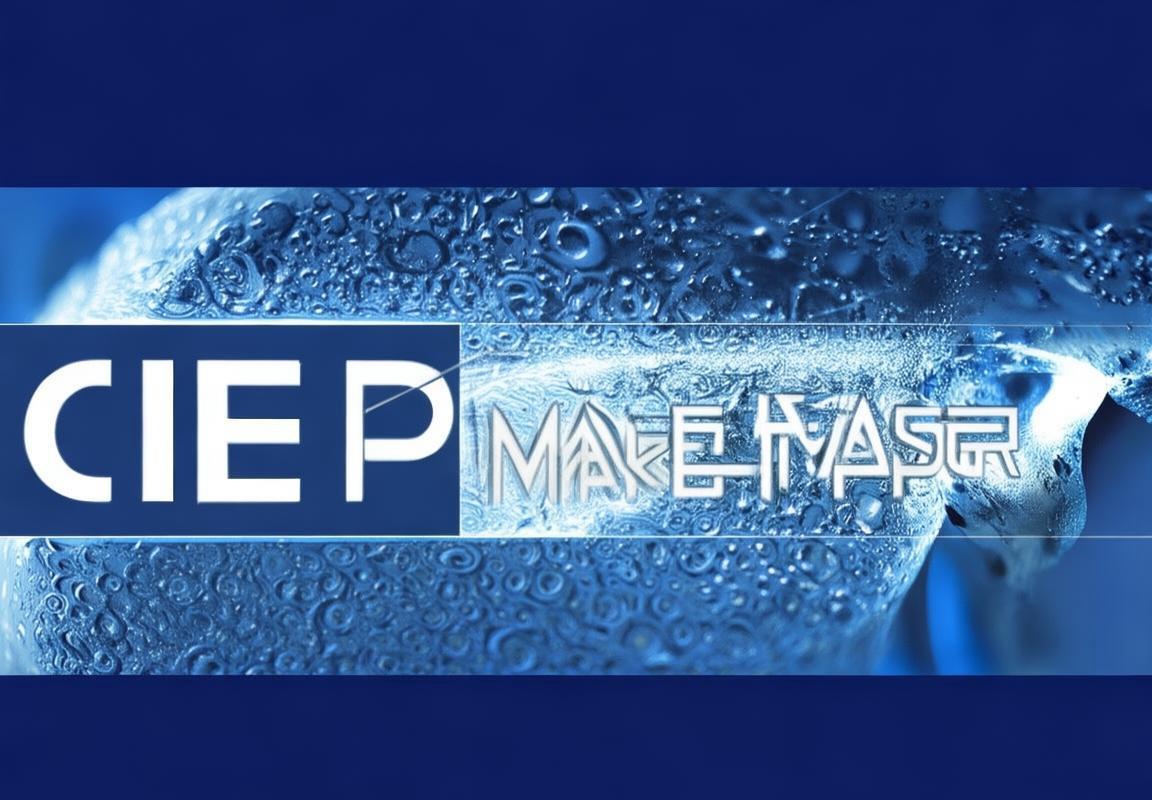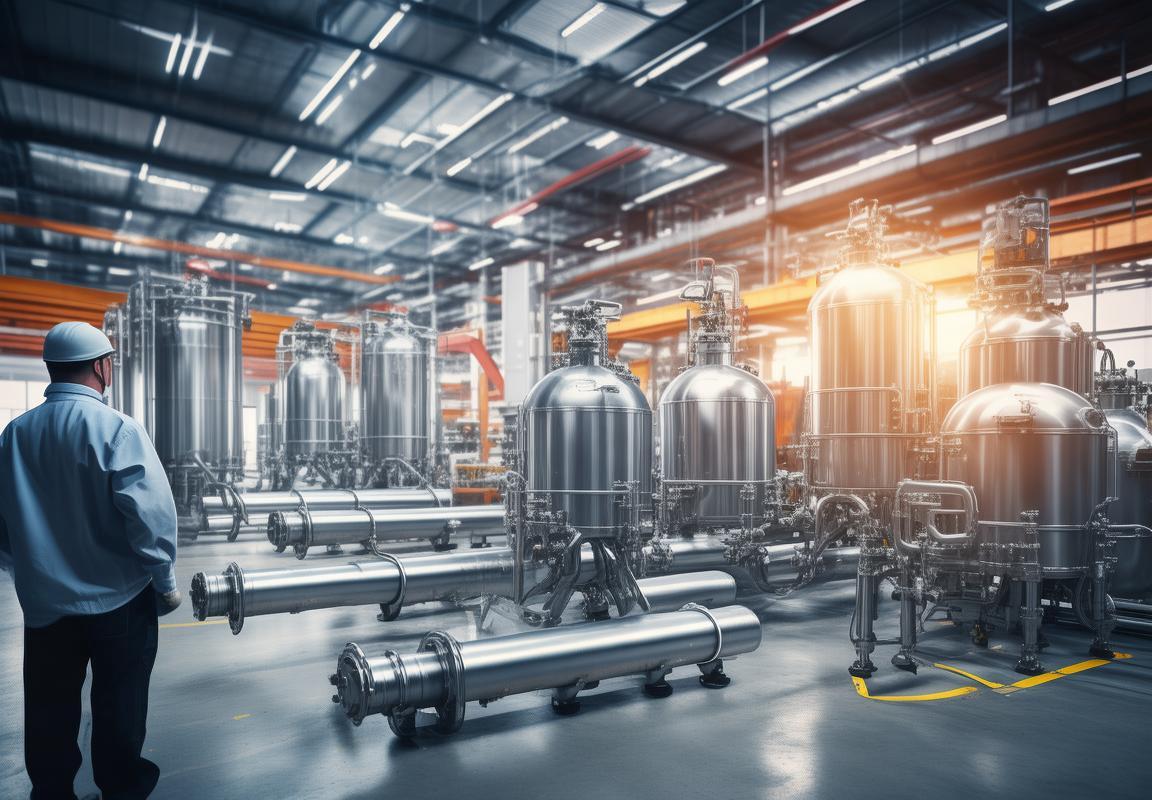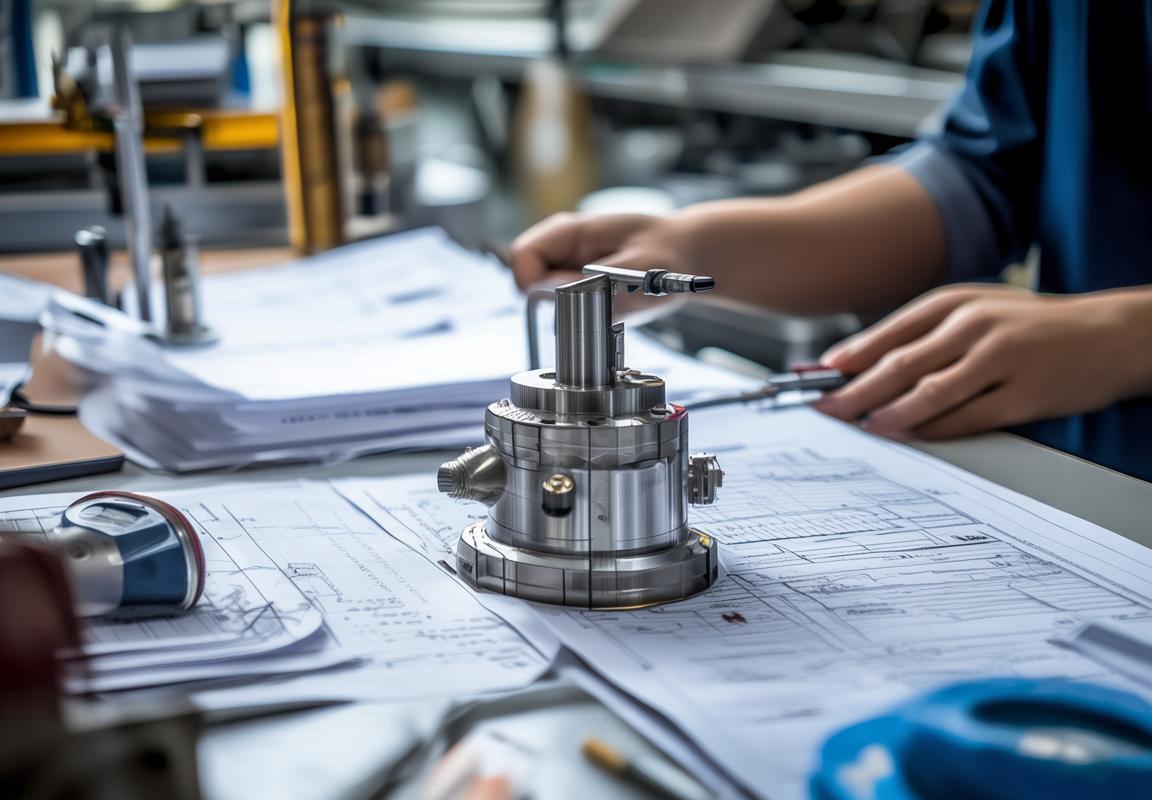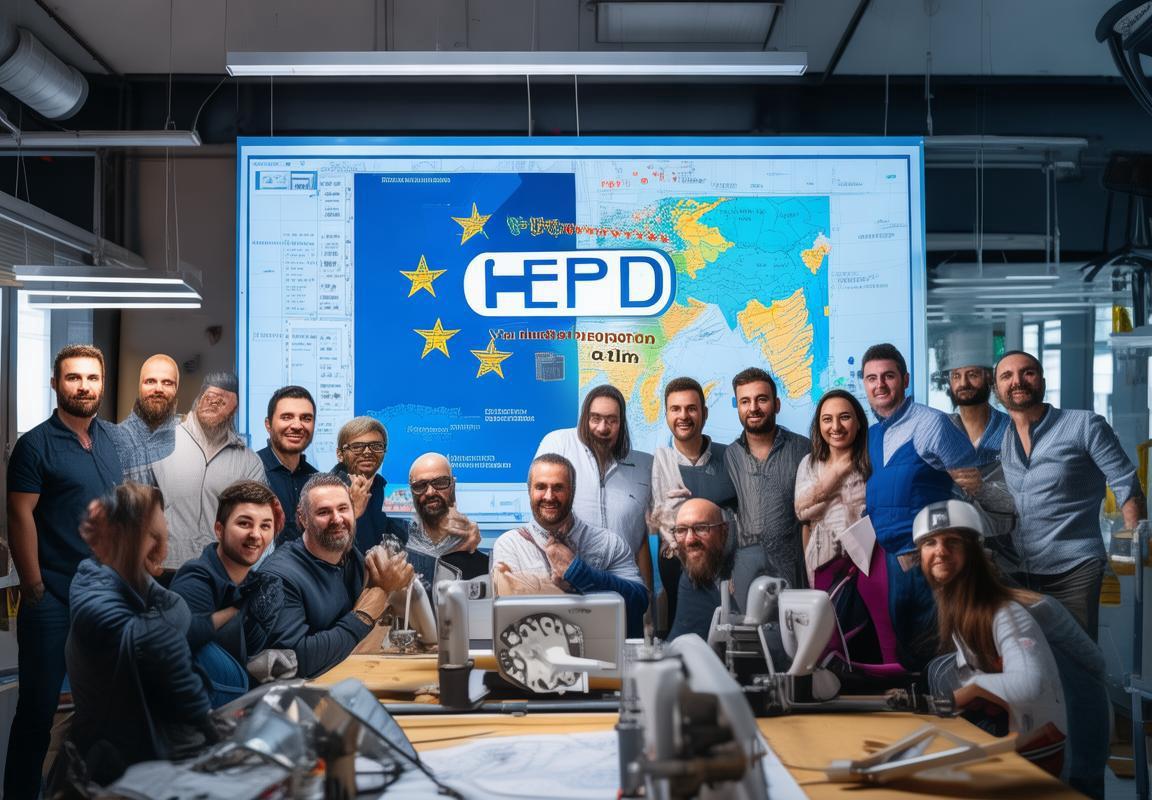In the fast-paced world of manufacturing, ensuring that pressure models meet stringent safety and quality standards is paramount. One such certification that stands out is the CE-PED certification. But what does this certification entail, and why is it crucial for manufacturers in the pressure model industry? This article delves into the details of the turnkey CE-PED certification process, its benefits, and how it streamlines compliance, while showcasing real-life success stories and looking ahead to future trends in this field.
Understanding Turnkey CE-PED Certification for Pressure Models
Turnkey CE-PED certification for pressure models is a game-changer in the world of industrial equipment. It’s a comprehensive process that ensures these models meet stringent European safety and environmental standards. But what exactly does it entail, and why is it so crucial for manufacturers and users alike? Let’s dive into the details.
Firstly, it’s essential to understand what CE marking is. CE stands for “Conformité Européenne,” which translates to “European Conformity.” This mark is a declaration by the manufacturer that the product meets all the essential health, safety, and environmental protection requirements set out in European legislation. For pressure models, this includes the Pressure Equipment Directive (PED), which covers the design, manufacture, and conformity assessment of pressure equipment.
The CE-PED certification specifically focuses on pressure equipment, ensuring that it is safe for use across the European Union. It’s not just about compliance; it’s about trust. When a pressure model carries the CE-PED mark, it signals to customers and authorities that the equipment has been thoroughly tested and meets the highest safety standards.
Now, what sets turnkey CE-PED certification apart? The term “turnkey” refers to a service that is fully managed and delivered by a third party. This means that the manufacturer can essentially “turn the key” over to the certification provider, who will handle everything from the initial assessment to the final certification.
This approach is particularly beneficial for smaller companies or those new to the European market. They may not have the resources or expertise to navigate the complexities of CE-PED certification on their own. A turnkey service takes the guesswork out of the process, providing a clear path to compliance.
The process begins with a thorough assessment of the pressure model to determine its category and the applicable conformity assessment procedures. This involves reviewing technical documentation, conducting risk assessments, and, if necessary, carrying out physical inspections and tests. The turnkey provider will guide the manufacturer through each step, ensuring that all necessary documentation is in order and that the equipment meets the required standards.
One of the key advantages of turnkey CE-PED certification is the efficiency it brings. Instead of the manufacturer investing time and resources into understanding the certification process, they can focus on what they do best—manufacturing high-quality pressure models. The turnkey provider will manage the certification process, including any necessary interactions with notified bodies, to ensure a smooth and timely certification.
Another important aspect of turnkey CE-PED certification is the ongoing support it provides. Once the certification is obtained, the turnkey provider can offer continued assistance, such as handling any follow-up audits or addressing any issues that may arise. This support is invaluable, as it helps to maintain the integrity of the CE-PED mark and ensures that the pressure model remains compliant with all applicable regulations.
The benefits of turnkey CE-PED certification for pressure models are multifaceted. For manufacturers, it means faster time-to-market and a competitive edge in the European market. For users, it means peace of mind that the equipment they are using is safe and reliable. This certification also opens up opportunities for exporting to other European countries, as the CE mark is recognized across the entire EU.
In addition, turnkey CE-PED certification can lead to cost savings in the long run. By streamlining the certification process, manufacturers can avoid costly delays and penalties that may arise from non-compliance. It also helps in avoiding the risk of recalls or product liability issues, which can be financially devastating.
Moreover, the turnkey approach allows for flexibility. Manufacturers can choose the level of certification that best suits their needs, whether it’s a basic conformity assessment or a more comprehensive one. This flexibility ensures that the certification process aligns with the company’s strategic goals and market positioning.
As the European market continues to evolve, the demand for turnkey CE-PED certification is likely to grow. With new regulations and advancements in technology, it’s more important than ever for pressure model manufacturers to stay compliant. Turnkey services are becoming an increasingly popular choice due to their efficiency, expertise, and cost-effectiveness.
In conclusion, turnkey CE-PED certification for pressure models is a valuable service that simplifies the compliance process and provides peace of mind for manufacturers and users. By handling the complexities of certification, turnkey providers enable companies to focus on what they do best, while ensuring that their products meet the highest safety and environmental standards. In a competitive market, this kind of support can be the difference between success and failure.

What is CE-PED Certification?
CE-PED certification stands for Conformité Européenne Pressure Equipment Directive. This certification is a crucial step for manufacturers of pressure equipment to ensure their products meet stringent European safety standards. It’s not just a piece of paper; it’s a comprehensive process that validates the design, manufacturing, and safety of pressure equipment.
To begin with, the CE-PED certification is rooted in the European Pressure Equipment Directive (2014/68/EU), which establishes the framework for the design, manufacture, and conformity assessment of pressure equipment. This directive covers a wide range of products, from pressure vessels and boilers to piping systems and safety accessories.
Understanding the scope of CE-PED is essential. It applies to pressure equipment that falls into categories A, B, C, D, E, and F, each with specific risk levels and corresponding requirements. For instance, category A encompasses the most dangerous equipment, such as steam boilers above a certain pressure, while category F covers lower-risk devices like simple pressure vessels.
The certification process itself is multifaceted. It starts with the manufacturer assessing the risks associated with their pressure equipment. This risk assessment is crucial as it determines the type of conformity assessment procedure that must be followed. The procedures can range from self-certification for low-risk equipment to type testing and quality assurance for high-risk items.
One key aspect of CE-PED certification is the involvement of Notified Bodies. These are organizations approved by the European Commission to carry out certain conformity assessment procedures. A Notified Body can verify that the equipment complies with the directive, conduct inspections, and issue certificates. Their role is to ensure that the certification process is thorough and that the equipment is safe for use.
Another critical element is the preparation of technical documentation. This includes detailed drawings, calculations, and design specifications that demonstrate how the equipment meets the necessary safety requirements. The documentation must be clear, accurate, and complete, as it serves as a reference throughout the certification process.
The actual testing phase of CE-PED certification is equally important. High-risk pressure equipment often requires rigorous testing to ensure its safety and reliability. This can involve physical testing, such as pressure tests, leak tests, and endurance tests, as well as non-destructive testing methods like ultrasonic and radiographic inspections.
Once the assessment and testing are complete, the manufacturer must affix the CE marking to the pressure equipment. The CE marking is a declaration that the product meets all the necessary health, safety, and environmental protection requirements set out by the European Union. It’s a symbol of compliance that allows manufacturers to market their products freely across the EU’s single market.
Maintaining CE-PED certification is an ongoing process. Manufacturers must keep detailed records of the production, maintenance, and service of their pressure equipment. They must also ensure that their quality management systems are up to date and that they continue to meet the requirements of the directive.
In terms of documentation, manufacturers must keep a Technical File for each type of pressure equipment they produce. This file should include all the necessary technical documentation, test results, and any other relevant information that supports the compliance of the product with the CE-PED.
For companies that import or distribute pressure equipment within the EU, CE-PED certification is equally important. They must ensure that the products they bring to the market have the required certification and that they provide adequate information to the end-users about the safety of the equipment.
In conclusion, CE-PED certification is a comprehensive process that ensures pressure equipment meets high safety standards. It involves risk assessment, technical documentation, testing, and ongoing compliance management. By adhering to the CE-PED directive, manufacturers can demonstrate their commitment to safety, enhance their reputation, and access new markets within the EU.

Why is CE-PED Certification Important for Pressure Models?
CE-PED certification holds a pivotal role in the world of pressure models, serving as a critical benchmark for quality, safety, and compliance. Here’s why it’s so important:
Ensuring Compliance with European StandardsCE-PED, which stands for Conformité Européenne – Pressure Equipment Directive, is a set of regulations established by the European Union. These regulations are designed to guarantee that pressure equipment, including pressure models, meet specific safety and performance criteria. By obtaining CE-PED certification, manufacturers can ensure that their products are compliant with these stringent European standards, which are recognized across the EU and in many other countries worldwide.
Enhancing Product SafetySafety is paramount in the design and manufacturing of pressure models. These devices are often used in critical applications, such as in the oil and gas industry, chemical processing, and power generation. CE-PED certification requires that pressure models undergo rigorous testing to ensure they can withstand high pressure without failure. This not only protects users from potential accidents but also prevents costly damages and liabilities.
Building Trust with Customers and PartnersIn a competitive market, customers and business partners are increasingly looking for assurance that the products they invest in are reliable and safe. CE-PED certification acts as a seal of approval, indicating that a pressure model has been thoroughly evaluated by a recognized authority. This can significantly enhance the credibility of the manufacturer and their products, leading to stronger relationships with clients and a competitive edge.
Facilitating Market AccessThe global market is vast and diverse, with each region having its own set of regulations. Obtaining CE-PED certification for pressure models opens up access to the European market, which is one of the largest and most influential in the world. It also allows manufacturers to export their products to countries that recognize the CE mark, simplifying the process of entering new markets and expanding their business reach.
Reducing Regulatory BurdensNavigating the complexities of various international regulations can be daunting for manufacturers. By adhering to the CE-PED directive, companies can streamline their compliance process. Instead of dealing with multiple sets of regulations, they can focus on meeting the requirements of a single directive that covers a broad range of pressure equipment. This not only saves time and resources but also reduces the risk of non-compliance.
Promoting Innovation and QualityThe CE-PED certification process encourages manufacturers to innovate and improve the quality of their pressure models. To obtain certification, companies must demonstrate that their products have been designed and tested to the highest standards. This often leads to the development of new technologies and better manufacturing practices, which can benefit the entire industry.
Ensuring Longevity and ReliabilityPressure models are designed to last for many years, and their reliability is crucial. CE-PED certification requires that products are durable and can perform consistently over their lifespan. This focus on longevity not only satisfies customer expectations but also reduces the need for frequent maintenance and replacements, leading to cost savings for both manufacturers and users.
Mitigating Risks in High-Pressure EnvironmentsIn industries where pressure models are used, the risks associated with equipment failure can be catastrophic. CE-PED certification helps mitigate these risks by ensuring that the equipment is designed to handle the specific conditions it will be exposed to. This includes factors like temperature, pressure, and the materials used in construction, all of which are carefully evaluated during the certification process.
Supporting Global Supply ChainsIn today’s interconnected world, supply chains are more complex than ever. CE-PED certification helps to facilitate smooth operations within these chains by ensuring that all components and systems meet the necessary safety standards. This is particularly important for pressure models, which are often part of larger systems that require interoperability and safety across different components.
In summary, CE-PED certification for pressure models is a cornerstone of trust, compliance, and quality in the global market. It not only ensures that products meet the highest safety standards but also opens doors to new markets and opportunities for growth. For manufacturers, obtaining this certification is not just a regulatory requirement; it’s an investment in the future of their business and the safety of their customers.

The Turnkey Approach: What It Means for Manufacturers
The turnkey approach to certification is a game-changer for manufacturers, especially those dealing with pressure models. This streamlined process not only simplifies the compliance journey but also brings several significant advantages to the table. Let’s delve into what this approach entails and how it benefits manufacturers.
In a turnkey scenario, manufacturers are provided with a comprehensive package that includes all the necessary steps to achieve certification. This means that from the moment a manufacturer decides to pursue CE-PED certification for their pressure models, they are handed a ready-to-follow roadmap. This can be particularly reassuring for businesses that may not have the expertise or resources to navigate the complex regulatory landscape on their own.
One of the key benefits of the turnkey approach is the elimination of guesswork. Manufacturers often face uncertainty about what is required to meet the stringent criteria of CE-PED certification. With a turnkey solution, every aspect of the process is clearly outlined, from the technical specifications to the documentation needed. This transparency ensures that no critical steps are overlooked, reducing the risk of delays or rejections.
Another advantage is the time-saving aspect. The certification process for pressure models can be lengthy and daunting, involving various stages such as design, testing, and documentation. A turnkey service typically includes a dedicated team that manages these stages efficiently, which can significantly reduce the time it takes to obtain certification. For manufacturers, this means they can get their products to market faster, gaining a competitive edge.
Financial considerations are also a major factor for manufacturers. The cost of certification can be substantial, encompassing not only the fees associated with testing and assessments but also the investment in equipment and personnel. The turnkey approach often includes these costs in a single, predictable fee, which can help manufacturers better manage their budgets. This all-inclusive pricing model can prevent unexpected expenses and allow businesses to plan their financial resources more effectively.
Quality control is another critical aspect that the turnkey approach addresses. Manufacturers are required to adhere to strict standards for pressure models, ensuring safety and performance. A turnkey service typically includes rigorous quality checks at each stage of the certification process. This not only guarantees that the final product meets the necessary requirements but also builds trust with customers and regulatory bodies.
Moreover, the turnkey approach often involves ongoing support. Manufacturers may face challenges even after obtaining certification, such as updates to the product or changes in regulatory requirements. A turnkey service may offer continuous support to ensure that products remain compliant over time. This can be particularly valuable for companies that want to maintain their reputation for quality and reliability.
For manufacturers, the turnkey approach to certification also has strategic implications. It allows businesses to focus on their core competencies, such as product development and market expansion, rather than getting bogged down in the intricacies of compliance. This strategic advantage can be a deciding factor in the long-term success of a company, as it enables them to allocate resources more effectively.
In the context of global markets, the turnkey approach is particularly valuable. CE-PED certification is not just a European requirement; it’s a global standard for pressure equipment. By opting for a turnkey service, manufacturers can ensure that their products meet international standards, which is essential for businesses looking to expand into new markets or secure contracts with international clients.
The turnkey approach also fosters innovation. By taking care of the certification process, manufacturers can invest more resources into research and development. This can lead to the creation of new products that are not only compliant with regulations but also innovative and competitive.
In conclusion, the turnkey approach to CE-PED certification for pressure models offers a range of benefits for manufacturers. From simplifying the process and saving time to reducing costs and ensuring quality, this all-inclusive service can significantly enhance a manufacturer’s ability to bring their products to market successfully. The strategic and innovative advantages it provides are just the icing on the cake, making it an increasingly popular choice for businesses in the pressure equipment industry.

The Process of Obtaining Turnkey CE-PED Certification
Navigating the complexities of certification can be daunting, especially for manufacturers dealing with pressure models. The turnkey approach to obtaining CE-PED certification simplifies this process, offering a comprehensive solution that takes the guesswork out of compliance. Here’s a closer look at what this process entails.
Understanding the Certification LandscapeThe CE marking is a vital symbol of compliance with European Union (EU) directives, while the PED (Pressure Equipment Directive) is specifically designed for equipment that operates at pressures above a certain threshold. The turnkey process for CE-PED certification ensures that all necessary steps are taken to meet these stringent requirements.
Comprehensive AssessmentA turnkey approach involves a thorough assessment of the pressure model to ensure it meets the necessary safety standards. This includes evaluating design, materials, manufacturing processes, and the final product itself. The assessment is designed to be comprehensive, covering every aspect that could impact the safety and performance of the pressure model.
Technical DocumentationOne of the key components of the turnkey certification process is the preparation of technical documentation. This includes detailed drawings, calculations, and specifications that demonstrate how the pressure model complies with the PED directive. The documentation must be clear, accurate, and easily accessible to certification authorities.
Engagement with Certification BodiesThe turnkey process often involves working closely with certification bodies that specialize in pressure equipment. These bodies are responsible for conducting audits, inspecting manufacturing facilities, and verifying that all aspects of the certification process are being followed. Manufacturers must be prepared to provide access to their facilities and documentation as needed.
Performance TestingTo ensure the pressure model meets safety standards, it may be necessary to undergo performance testing. This testing can range from simple leak tests to more complex hydraulic or pneumatic tests that simulate real-world conditions. The turnkey approach includes planning and executing these tests, ensuring that the results are reliable and meet the required criteria.
Compliance with Regulatory RequirementsThe CE-PED certification process requires adherence to specific regulatory requirements. A turnkey service will guide manufacturers through the maze of regulations, ensuring that all necessary documentation is in place and that the design and production processes are compliant. This includes understanding the classification of the pressure equipment, which can impact the level of certification needed.
Quality AssuranceMaintaining quality throughout the certification process is crucial. A turnkey service will implement quality assurance protocols to ensure that the pressure model is produced to the highest standards. This includes regular inspections, audits, and the use of quality control measures to prevent defects and ensure consistency.
Post-Certification SupportOnce the CE-PED certification is obtained, the turnkey service may offer ongoing support. This can include assistance with market surveillance, ensuring that the pressure model continues to comply with the PED directive even after it is in use. It may also involve helping the manufacturer with any necessary updates or modifications to the product.
Cost and Time EfficiencyOne of the most significant advantages of the turnkey approach is cost and time efficiency. By handling all aspects of the certification process, manufacturers can avoid the costs and delays associated with navigating the process alone. This includes the costs of hiring additional staff, conducting research, and managing the certification process internally.
ConclusionThe turnkey approach to obtaining CE-PED certification for pressure models is a streamlined, all-inclusive solution that takes the complexity out of compliance. By ensuring that every step of the process is managed efficiently and effectively, manufacturers can focus on their core business activities, confident that their products meet the necessary safety standards and can be successfully marketed within the EU.

Benefits of Turnkey CE-PED Certification for Pressure Models
Navigating the complexities of the market, pressure model manufacturers often seek certifications to ensure their products meet stringent safety and quality standards. Turnkey CE-PED certification offers a streamlined process that brings numerous benefits. Here’s a closer look at the advantages this comprehensive service provides:
-
Enhanced Market Access: With Turnkey CE-PED certification, manufacturers gain a competitive edge by being able to sell their pressure models in the European Union (EU) and other countries that recognize the CE mark. This expanded market access opens doors to a larger consumer base and increased business opportunities.
-
Increased Consumer Confidence: The CE-PED mark signifies that a product has undergone rigorous testing and meets the essential health and safety requirements set by the EU. By obtaining this certification through a turnkey service, manufacturers can instill confidence in consumers that their products are reliable and safe to use.
-
Compliance Simplified: The turnkey approach simplifies the compliance process for manufacturers. Instead of navigating the complexities of CE-PED certification alone, manufacturers can rely on the expertise of a turnkey service provider to handle the entire process. This includes understanding the technical documentation, conducting the necessary tests, and preparing the required declarations.
-
Time and Cost Efficiency: Turnkey services are designed to be efficient, saving manufacturers both time and money. By handling the certification process end-to-end, these services can expedite the time it takes to obtain the CE-PED mark, allowing manufacturers to bring their products to market faster. Additionally, turnkey services often bundle services together, reducing the overall cost of certification.
-
Technical Expertise: Turnkey CE-PED certification services are staffed with professionals who have in-depth knowledge of the regulations and standards involved. This expertise ensures that all aspects of the certification process are handled correctly, minimizing the risk of errors and rejections.
-
Global Recognition: The CE-PED mark is not only recognized within the EU but also in other countries that have mutual recognition agreements. This means that once a manufacturer has obtained CE-PED certification, they can potentially enter markets beyond the EU with minimal additional effort.
-
Risk Mitigation: Compliance with safety and health standards is critical in the pressure model industry. Turnkey certification helps mitigate risks by ensuring that products are designed and manufactured to the highest safety standards. This can protect manufacturers from potential legal issues and recalls.
-
Continuous Improvement: Turnkey certification services often include ongoing support and guidance. This means that manufacturers can benefit from updates and changes to regulations, helping them to continuously improve their products and stay ahead of the competition.
-
Streamlined Aftercare: Once CE-PED certification is obtained, manufacturers may need assistance with post-market surveillance, technical documentation updates, and customer service. Turnkey services often offer continued support, ensuring that manufacturers are well-equipped to handle any issues that may arise after certification.
-
Brand Value and Reputation: Obtaining CE-PED certification through a turnkey service can enhance a manufacturer’s brand value and reputation. Customers are more likely to trust a brand that has gone through a thorough certification process, which can lead to increased loyalty and repeat business.
-
Flexibility and Scalability: Turnkey services are typically designed to be flexible and scalable, allowing manufacturers to adapt to changes in their business and product lines. Whether expanding into new markets or introducing new products, turnkey certification can be tailored to meet evolving needs.
In summary, the benefits of Turnkey CE-PED certification for pressure models are multifaceted, offering manufacturers a comprehensive solution that not only ensures compliance but also enhances their market position and customer trust.

How Turnkey Certification Streamlines Compliance
Navigating the complexities of regulatory compliance can be a daunting task for manufacturers, especially when dealing with pressure models that require CE-PED certification. The turnkey certification process is designed to simplify this journey, offering a streamlined approach that not only saves time but also ensures adherence to stringent European Union safety standards. Here’s how turnkey certification streamlines compliance for pressure models:
In the world of industrial equipment, the CE marking is a beacon of quality and compliance. It signifies that a product meets the essential health, safety, and environmental protection requirements of the European Union. When it comes to pressure models, such as pressure gauges, regulators, and safety valves, the CE-PED (Pressure Equipment Directive) certification is a critical step in this process.
Turnkey certification providers act as a one-stop shop, offering a comprehensive service that includes all the necessary steps to obtain the CE-PED mark. This means manufacturers don’t have to navigate the intricacies of certification on their own, which can be a time-consuming and resource-intensive process.
One of the key benefits of turnkey certification is the efficiency it brings to the compliance process. Instead of manufacturers going through the lengthy process of gathering technical documentation, conducting risk assessments, and ensuring that their products meet all the necessary standards, turnkey providers take care of these tasks. This not only expedites the certification process but also reduces the risk of errors that could lead to delays or rejections.
The turnkey approach also ensures that all aspects of compliance are addressed. This includes not only the product itself but also the manufacturing processes, quality control measures, and the ability to provide evidence of compliance should regulatory authorities request it. By handling all these aspects, turnkey certification providers help manufacturers maintain a high level of compliance without the need for extensive in-house expertise.
Another advantage is the peace of mind that comes with knowing that the certification process is being managed by experts. These providers are well-versed in the latest regulations and standards, which means they can guide manufacturers through any changes or updates to the CE-PED directive. This level of expertise is particularly valuable in industries where regulations are subject to frequent changes, such as pressure equipment.
Turnkey certification also helps manufacturers avoid the costs associated with non-compliance. Failing to meet CE-PED requirements can lead to fines, product seizures, and even the closure of a company’s European Union market. By ensuring that all compliance measures are met, turnkey certification providers help protect manufacturers from these potential financial and operational risks.
The process of obtaining turnkey CE-PED certification is designed to be user-friendly. Manufacturers simply need to provide the necessary information about their pressure models, including technical drawings, material specifications, and performance data. The turnkey provider then takes over, conducting the necessary tests, assessments, and documentation work.
One of the hallmarks of turnkey certification is the level of support provided throughout the process. Manufacturers can expect regular updates on the status of their certification, as well as assistance with any issues that may arise. This support is crucial in a process that can be complex and confusing, especially for those who are not familiar with the intricacies of the CE-PED directive.
Furthermore, turnkey certification can help manufacturers expand their market reach. By obtaining the CE mark, products gain access to the vast European Union market, which is one of the largest and most lucrative in the world. This can lead to increased sales and growth opportunities for businesses that choose to work with turnkey certification providers.
The streamlined nature of turnkey certification also means that manufacturers can focus on what they do best—designing and producing high-quality pressure models. By outsourcing the compliance process, they can allocate their resources more effectively, ensuring that their products meet the highest standards without the distraction of regulatory paperwork.
In conclusion, turnkey certification for pressure models is a valuable service that simplifies compliance, reduces costs, and minimizes risks. By taking care of the complexities of CE-PED certification, turnkey providers enable manufacturers to focus on their core competencies, ultimately leading to a more efficient and successful business operation within the European Union market.

Case Studies: Success Stories with Turnkey CE-PED Certification
Navigating the complexities of certification can be daunting for manufacturers, especially when it comes to CE-PED (Conformité Européenne – Pressure Equipment Directive) certification for pressure models. However, turnkey certification services have emerged as a beacon of efficiency and expertise. Let’s delve into some success stories that highlight how turnkey CE-PED certification has transformed compliance processes for various companies.
In one instance, a small engineering firm specializing in pressure vessels was facing the challenge of meeting the stringent requirements of the CE-PED directive. The process involved not only understanding the technical specifications but also dealing with the administrative hurdles of certification. Enter the turnkey certification service, which took over the entire process from start to finish.
The turnkey service began by conducting a thorough audit of the firm’s production facilities, ensuring that all equipment and materials met the necessary standards. They then guided the company through the documentation phase, meticulously compiling technical files and compliance reports. With the help of the turnkey provider, the firm swiftly passed the initial compliance checks and was well on its way to obtaining the CE-PED mark.
Another success story involves a multinational corporation that produces a wide range of pressure equipment. The company had multiple product lines that required CE-PED certification, each with its unique set of regulations and technical specifications. The turnkey certification approach was instrumental in managing the diverse requirements efficiently.
The turnkey service began by conducting a gap analysis, identifying areas where the company needed to improve its compliance processes. They then worked alongside the company’s engineers to develop and implement solutions that would meet the CE-PED directive. This included creating detailed technical drawings, ensuring the use of compliant materials, and implementing quality control measures.
As the certification process unfolded, the turnkey provider also managed the communication with the certification body, ensuring that all documentation and evidence were presented in a clear and concise manner. This streamlined approach allowed the corporation to maintain its production schedule without any significant delays.
In yet another case, a startup company with a novel design for a pressure relief valve faced the challenge of securing CE-PED certification. The founders, while passionate about their product, were unsure of the certification process and how to navigate the various regulations.
The turnkey certification service stepped in, providing the startup with a comprehensive plan tailored to its specific product and market. They guided the company through the design and testing phases, ensuring that the product met the necessary safety standards. The turnkey provider also took care of the certification paperwork, from initial submissions to final approvals.
The startup’s success story was not just about obtaining the CE-PED mark; it was about gaining the trust of potential customers. With the CE-PED certification in place, the company’s products were deemed compliant with European safety standards, opening doors to a wider market.
These success stories underscore the value of turnkey CE-PED certification for pressure models. By taking on the entire certification process, turnkey providers free up manufacturers to focus on what they do best—developing and producing high-quality products. Here are some key benefits of this approach:
-
Efficiency: Turnkey services handle every aspect of the certification process, from initial audits to final approvals, saving manufacturers considerable time and resources.
-
Expertise: Turnkey providers bring a wealth of knowledge and experience to the table, ensuring that all compliance requirements are met with precision.
-
Consistency: The turnkey approach guarantees a consistent and uniform certification process, which is crucial for maintaining brand reputation and customer trust.
-
Cost-Effectiveness: While the initial cost of turnkey certification may seem high, it often proves to be more cost-effective in the long run, as it minimizes the risk of compliance failures and associated fines.
-
Market Access: CE-PED certification is a requirement for selling pressure models in the European Union. Turnkey certification ensures that manufacturers can access this lucrative market without delay.
-
Risk Mitigation: By outsourcing the certification process to experts, manufacturers mitigate the risk of regulatory non-compliance, which can lead to legal issues and reputational damage.
In conclusion, the turnkey CE-PED certification process has proven to be a game-changer for manufacturers looking to streamline compliance and enter the European market. These success stories demonstrate the power of turnkey services in simplifying the certification process, from the initial audit to the final certification mark. As the demand for compliant pressure models continues to grow, turnkey certification will likely become an even more essential tool for manufacturers seeking to thrive in a highly regulated environment.

Navigating the Future: Trends in Turnkey CE-PED Certification for Pressure Models
The turnkey CE-PED certification process for pressure models has emerged as a crucial step in ensuring compliance with European Union regulations. As industries evolve and regulations become more stringent, understanding the future trends in this certification is essential for manufacturers. Here are some key trends shaping the landscape of turnkey CE-PED certification for pressure models:
-
Increased Emphasis on Digital ComplianceAs technology advances, the trend towards digital compliance is growing. Manufacturers are increasingly adopting digital tools to manage and track their certification processes. This includes using software for documentation, quality management, and regulatory updates. The integration of digital systems not only enhances efficiency but also ensures that all documentation is readily accessible and up-to-date.
-
Enhanced Collaboration Between Regulatory Bodies and ManufacturersThe future of turnkey CE-PED certification will likely see a greater emphasis on collaboration between regulatory bodies and manufacturers. This partnership can lead to more streamlined processes, clearer guidelines, and a mutual understanding of the challenges faced by both parties. By working together, regulatory bodies can provide manufacturers with the necessary support to meet certification requirements effectively.
-
Rising Demand for Customized SolutionsAs the market diversifies, so does the need for customized certification solutions. Pressure models come in various shapes, sizes, and applications, each requiring specific compliance measures. The trend is towards certification bodies offering tailored services that address the unique requirements of different pressure models, ensuring that manufacturers can meet their obligations without unnecessary hurdles.
-
Globalization and Harmonization EffortsWith the globalization of markets, there is a growing trend towards harmonization of regulations. This means that manufacturers aiming to export their pressure models to multiple European countries will need to ensure compliance with a unified set of standards. Turnkey CE-PED certification will play a pivotal role in this harmonization, providing a one-stop solution for manufacturers looking to expand their reach across the EU.
-
Sustainability and Environmental ConsiderationsThe future of turnkey CE-PED certification will also reflect a stronger focus on sustainability and environmental impact. As the EU continues to push for greener practices, pressure model manufacturers will need to demonstrate their commitment to sustainability through their certification processes. This could involve eco-friendly materials, energy-efficient designs, and a reduction in the overall carbon footprint.
-
Advancements in Testing and Evaluation MethodsThe methods used to test and evaluate pressure models are constantly evolving. There is a trend towards more advanced and precise testing techniques that can provide a clearer picture of a model’s performance and compliance. This includes the use of AI and machine learning to analyze data and predict potential issues before they arise.
-
Increased Focus on CybersecurityGiven the increasing connectivity of devices, cybersecurity has become a critical concern. Pressure models that are part of smart systems or IoT networks must be certified to meet cybersecurity standards. Turnkey CE-PED certification will need to incorporate cybersecurity assessments to ensure that these models are secure against cyber threats.
-
Regulatory Updates and Continuous ImprovementRegulations are not static; they evolve over time. Manufacturers must stay informed about changes to CE-PED requirements and adapt their certification processes accordingly. The trend is towards continuous improvement and a culture of compliance that ensures pressure models remain in line with the latest regulations.
-
Consumer Trust and Brand ReputationIn an era where consumer trust is paramount, turnkey CE-PED certification can significantly enhance a manufacturer’s brand reputation. As consumers become more aware of the importance of compliance, having a turnkey certification process in place can be a competitive advantage, assuring customers of the quality and safety of the products they purchase.
-
Education and Training for Industry ProfessionalsThe future of turnkey CE-PED certification will also involve a focus on education and training. As new regulations and technologies emerge, industry professionals will need to be equipped with the knowledge and skills to navigate the certification process effectively. This could involve workshops, webinars, and online courses tailored to the needs of manufacturers and compliance officers.
By keeping abreast of these trends, manufacturers can position themselves to thrive in the evolving landscape of turnkey CE-PED certification for pressure models. Embracing these changes will not only ensure compliance but also open doors to new opportunities and markets.

Conclusion: The Value of Turnkey CE-PED Certification for Pressure Model Manufacturers
In the realm of pressure model manufacturing, the turnkey CE-PED certification process stands as a beacon of efficiency and compliance. It’s not just a certification; it’s a comprehensive solution that brings peace of mind to manufacturers and ensures their products meet stringent European standards. Let’s delve into the multifaceted benefits that this turnkey certification brings to the table.
Turnkey CE-PED certification for pressure models ensures that manufacturers have a streamlined path to compliance with European Directives, particularly the Pressure Equipment Directive (PED). This certification is not just about meeting regulatory requirements; it’s about fostering a culture of quality, safety, and customer trust.
One of the key advantages is the assurance it provides to customers. With turnkey certification, manufacturers can confidently market their pressure models, knowing that they have undergone rigorous testing and evaluation. This not only boosts customer confidence but also opens up new markets within the European Union. The CE mark, which is a testament to compliance with the PED, has become a symbol of quality and reliability.
Another significant benefit is the reduction in time and resources required to achieve certification. Traditional certification processes can be cumbersome and time-consuming, involving multiple stages and often necessitating the hiring of external experts. With turnkey certification, manufacturers gain access to a one-stop solution that handles all aspects of the certification process, from design, manufacturing, and testing to documentation and labeling. This not only expedites the certification timeline but also minimizes the need for internal resources, allowing manufacturers to focus on their core competencies.
The turnkey approach also means that manufacturers benefit from standardized procedures and protocols. This standardization ensures consistency in the certification process, which in turn leads to a more reliable and predictable outcome. Standardized testing and assessment methods mean that the quality and safety of pressure models are uniformly evaluated, providing a level playing field for all manufacturers.
For many businesses, especially small and medium-sized enterprises (SMEs), the cost of certification can be a barrier. Turnkey CE-PED certification mitigates this issue by offering a cost-effective solution. By consolidating all certification activities into a single package, the overall cost is often lower than if each aspect were managed separately. This affordability makes compliance more accessible to a wider range of manufacturers, fostering competition and innovation within the industry.
Moreover, turnkey certification for pressure models can be a powerful differentiator in the market. In a highly regulated environment, having the CE mark is not just a legal requirement but also a competitive edge. It signals to customers that the product has been thoroughly vetted and meets the highest safety standards. This can be a significant selling point, especially in industries where safety is paramount, such as in the oil and gas, pharmaceutical, and food processing sectors.
From a regulatory perspective, turnkey CE-PED certification helps ensure that pressure models are safe and reliable, which is crucial for public safety. By adhering to the PED, manufacturers contribute to the reduction of accidents and incidents that could result from the failure of pressure equipment. This not only saves lives but also reduces the financial burden on healthcare systems and businesses.
The documentation process is another area where turnkey certification shines. It requires manufacturers to compile extensive technical files that detail the design, manufacturing processes, and safety assessments of their pressure models. With turnkey certification, these files are meticulously prepared and reviewed, ensuring that all necessary information is present and accurately presented. This level of detail not only meets regulatory requirements but also provides a comprehensive reference for future maintenance and upgrades.
Furthermore, turnkey certification often includes follow-up services. Once certified, manufacturers may benefit from ongoing support, including advice on maintaining compliance with evolving regulations and best practices. This support can be invaluable, especially in an industry where standards and requirements are continually evolving.
In terms of international trade, turnkey CE-PED certification is a crucial step for manufacturers looking to export their products to the European Union. The CE mark is recognized across the EU, making it easier for manufacturers to navigate the complexities of international trade. It also opens up opportunities for collaborations and partnerships with European companies that may require compliance with PED.
Lastly, the environmental benefits of turnkey CE-PED certification should not be overlooked. By ensuring that pressure models are safe and efficient, manufacturers contribute to a more sustainable industry. This can have a positive impact on the environment, from reducing waste to improving energy efficiency.
In conclusion, the value of turnkey CE-PED certification for pressure model manufacturers is multifaceted. It provides a pathway to compliance, enhances customer confidence, streamlines processes, reduces costs, and fosters a culture of safety and quality. As the industry continues to evolve, turnkey certification will likely become an even more integral part of the manufacturing landscape, offering manufacturers a competitive advantage in a highly regulated and safety-conscious market.